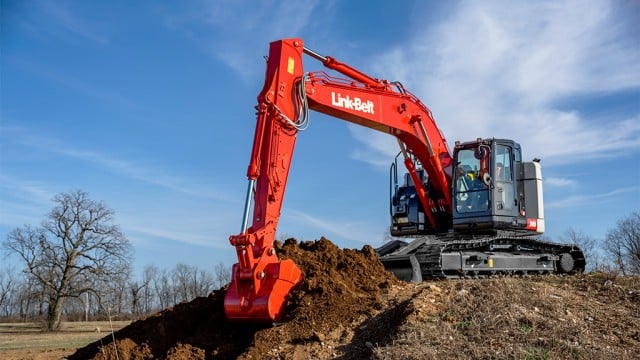9 Tips for Preparing to Sell Your Dealership: A Comprehensive Checklist
For many equipment dealers, the business represents a significant portion of their financial and personal legacy.

Selling your dealership can be one of the most pivotal decisions in your professional life. For many dealers, the business represents a significant portion of their financial and personal legacy. Ensuring that the sale goes smoothly, meets your financial expectations, and secures a positive future for your employees, customers, and community requires thoughtful preparation and planning. A successful dealership sale involves multiple moving parts, from financial evaluations to legal compliance and emotional readiness. This comprehensive checklist will guide you through the process and help you maximize the value of your dealership while minimizing complications.
1. Define Your Goals and Exit Strategy
Before beginning the sales process, you must clearly define your objectives: - Financial goals: What is the minimum sale price you’re willing to accept? How does that align with your financial needs for retirement or other business ventures? - Timeline: Do you want to sell quickly, or are you willing to wait for the right buyer and terms? - Post-sale involvement: Are you looking to fully exit the business, or would you like to stay on as a consultant or in a transitional role? Being clear on your exit strategy will help frame the entire sales process, ensuring that the decisions made align with your long-term goals.
2. Assemble Your Advisory Team
Selling a dealership is a complex transaction, and having the right team of advisors is essential. Assemble a group of trusted professionals who specialize in dealership transactions: - Broker: A dealership broker will provide invaluable guidance and help find qualified buyers. They also assist in negotiations and ensure the sale process remains smooth. - Attorney: You’ll need a legal expert with experience in dealership sales to navigate the complexities of contracts, agreements, and regulatory compliance. - Accountant: A certified public accountant (CPA) can help you organize your financial statements and ensure that the transaction is tax-efficient. - Financial Planner: Depending on your goals, you may need a financial planner to help ensure that your post-sale financial situation meets your needs for retirement or other ventures.
3. Clean Up Your Financials
One of the first things potential buyers will want to see is your dealership’s financial performance. Clean, organized, and transparent financial records are critical in instilling confidence in a buyer. You should: - Ensure financial statements are accurate: Work with your accountant to prepare audited or reviewed financial statements going back at least three to five years. - Disclose liabilities: Be upfront about any outstanding debts, loans, or pending legal matters that could affect the sale price. - Separate personal expenses: If you’ve been running personal expenses through the business, remove these from your financial records to provide a clear picture of profitability. - Evaluate inventory and assets: Ensure that your inventory is up to date, and your assets (vehicles, equipment, etc.) are properly maintained and accounted for in your financials.
4. Optimize Your Operations
The better your dealership is performing at the time of sale, the higher the valuation you’ll likely receive. Focus on operational efficiency and profitability in the months leading up to a sale: - Streamline processes: Ensure your dealership is operating efficiently, with clear workflows and minimal bottlenecks. - Optimize staffing: Have the right people in key positions and ensure that your staff is well-trained. A strong, competent team will give buyers confidence in a smooth transition. - Improve customer satisfaction: Positive customer reviews and a loyal customer base increase the value of your dealership. Focus on providing exceptional service to build goodwill.
5. Document Business Processes and Relationships
Buyers are not just purchasing physical assets and inventory; they’re investing in a well-run operation. Documenting your processes and maintaining strong relationships with key stakeholders can significantly increase the value of your dealership: - Standard Operating Procedures (SOPs): Have written documentation for day-to-day operations, marketing, and sales processes. This helps ensure continuity post-sale. - Manufacturer relationships: Ensure that your relationships with manufacturers are in good standing and that any agreements are up to date. - Vendor and supplier agreements: Provide buyers with information on your key vendors and suppliers, including terms of agreements and the length of any contracts. - Customer contracts: Highlight any long-term customer relationships or service contracts that will transfer to the new owner.
6. Real Estate and Lease Agreements
Real estate can be a major part of the transaction. Determine if you are selling the property along with the business or leasing it to the buyer: - Obtain a property valuation: If you own the real estate, obtain an independent appraisal to determine its market value. - Review lease agreements: If your dealership is on leased property, review your current lease terms and be prepared to disclose them to prospective buyers. - Consider environmental impact studies: Many buyers will require an environmental inspection of your property. Address any potential environmental concerns before the sale.
7. Understand the Tax Implications
The sale of your dealership will likely result in significant tax consequences, including capital gains taxes. Work closely with your accountant and financial planner to: - Estimate taxes on the sale: Determine how much you will owe in taxes after the sale, including state and federal taxes. - Consider tax minimization strategies: Explore options like installment sales or 1031 exchanges to potentially defer or minimize tax liabilities
8. Negotiate the Sale
Once a buyer is identified, you will enter into negotiations over the terms of the sale. Key areas to negotiate include: - Price: Based on the valuation of your dealership, negotiate the sale price. - Payment structure: Will the buyer pay in full at closing, or will there be an installment plan? Consider if seller financing will be required. - Non-compete agreements: Buyers may ask you to agree not to open a competing business within a certain geographic area for a defined period. - Transition period: Determine how long you will stay involved in the business post-sale to help with the transition.
9. Prepare for Due Diligence
Once you have selected a buyer, they will conduct extensive due diligence on your dealership. Be prepared for this process by gathering the necessary documents in advance: - Financial statements: As mentioned, have your financials prepared for review. - Legal documents: Provide copies of all relevant contracts, including leases, franchise agreements, and supplier contracts. - Licenses and permits: Ensure that all business licenses and permits are current and can be transferred to the new owner. - Employee records: Be ready to provide information on employees, including contracts, compensation structures, and benefits.
Selling a dealership is a significant undertaking, but with the right preparation, you can maximize the value of your business and ensure a smooth transition. Use this checklist to guide your preparation and work closely with your advisory team to navigate the complexities of the sale.
Request a free 30-minute consultation if you have questions or would like to have a confidential conversation.

 machineryasia
machineryasia 








